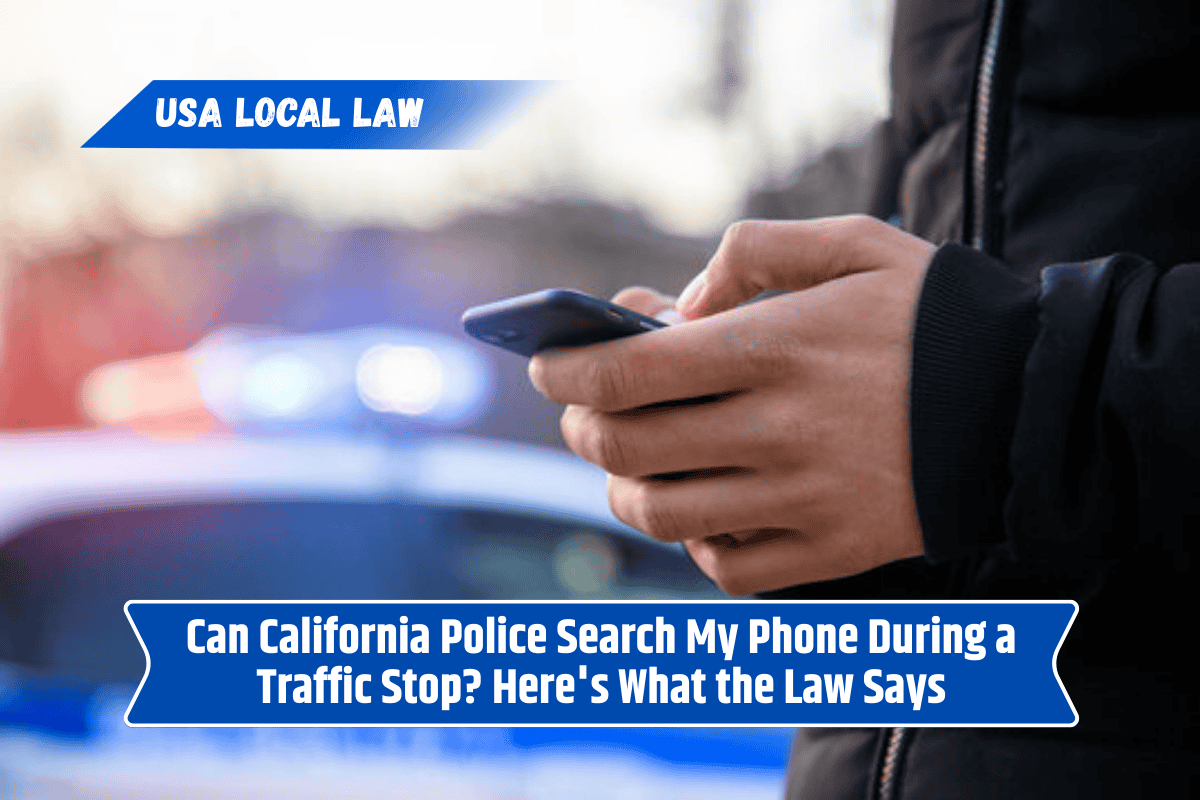Getting pulled over by the police during a traffic stop can be stressful. Many people worry about what rights they have, especially when it comes to their mobile phones.
In California, there are specific rules about whether or not the police can check your phone without your permission. Let’s break it down in simple words so you know your rights and what to expect.
Your Phone Is Protected by the Fourth Amendment
In the United States, the Fourth Amendment protects you from unreasonable searches and seizures. This means the police cannot just grab your phone and go through it without a good reason or your permission.
Your phone holds personal data—messages, photos, apps, emails—and the law sees this as private information that needs strong protection.
The Police Usually Need a Warrant
According to a major court decision (Riley v. California, 2014), the police cannot search your phone during a routine traffic stop unless they have a search warrant.
A warrant is a legal paper from a judge that gives officers permission to check your phone. Without a warrant, they are not allowed to open or scroll through your phone, even if they ask.
What If You Give Consent?
If the police ask to look at your phone and you say yes, then they are legally allowed to search it. This is called giving “consent.” But remember, you have the right to say no. You do not have to agree to a phone search. Politely saying, “I don’t consent to a search,” is enough. You do not need to argue or explain.
Are There Any Exceptions?
Yes, there are a few rare situations where police can search your phone without a warrant. This usually happens when there is an emergency, like:
They believe someone is in danger.
There is a risk of losing important evidence quickly.
But these cases are not common and the police must be able to justify their actions later in court. For everyday traffic stops, these exceptions almost never apply.
What About If You’re Arrested?
If you’re arrested during the traffic stop, things change a bit. Even then, police still usually need a warrant to search your phone. Just being arrested doesn’t automatically give them the right to go through your device.
Can They Take Your Phone?
Yes, officers can take and hold your phone during an investigation or arrest, but they still can’t go through it without a warrant or your consent. They may hold it as part of the evidence, but again, they can’t open it unless the law allows it.
How to Protect Your Rights Politely
Always stay calm and respectful when talking to police. If they ask to search your phone, you can say:
“I do not consent to any searches.”
This simple sentence helps protect your rights, and it’s your legal choice. Never fight or argue—just clearly state that you don’t agree.
In California, police cannot search your phone during a traffic stop unless they have your consent or a legal warrant. Your phone is considered private property, and the law protects it just like your home or personal belongings.
Even if you are arrested, police usually still need a warrant to search your device. Knowing your rights and staying calm can make all the difference during a traffic stop. Always remember—you can say no to a phone search without getting into legal trouble.
